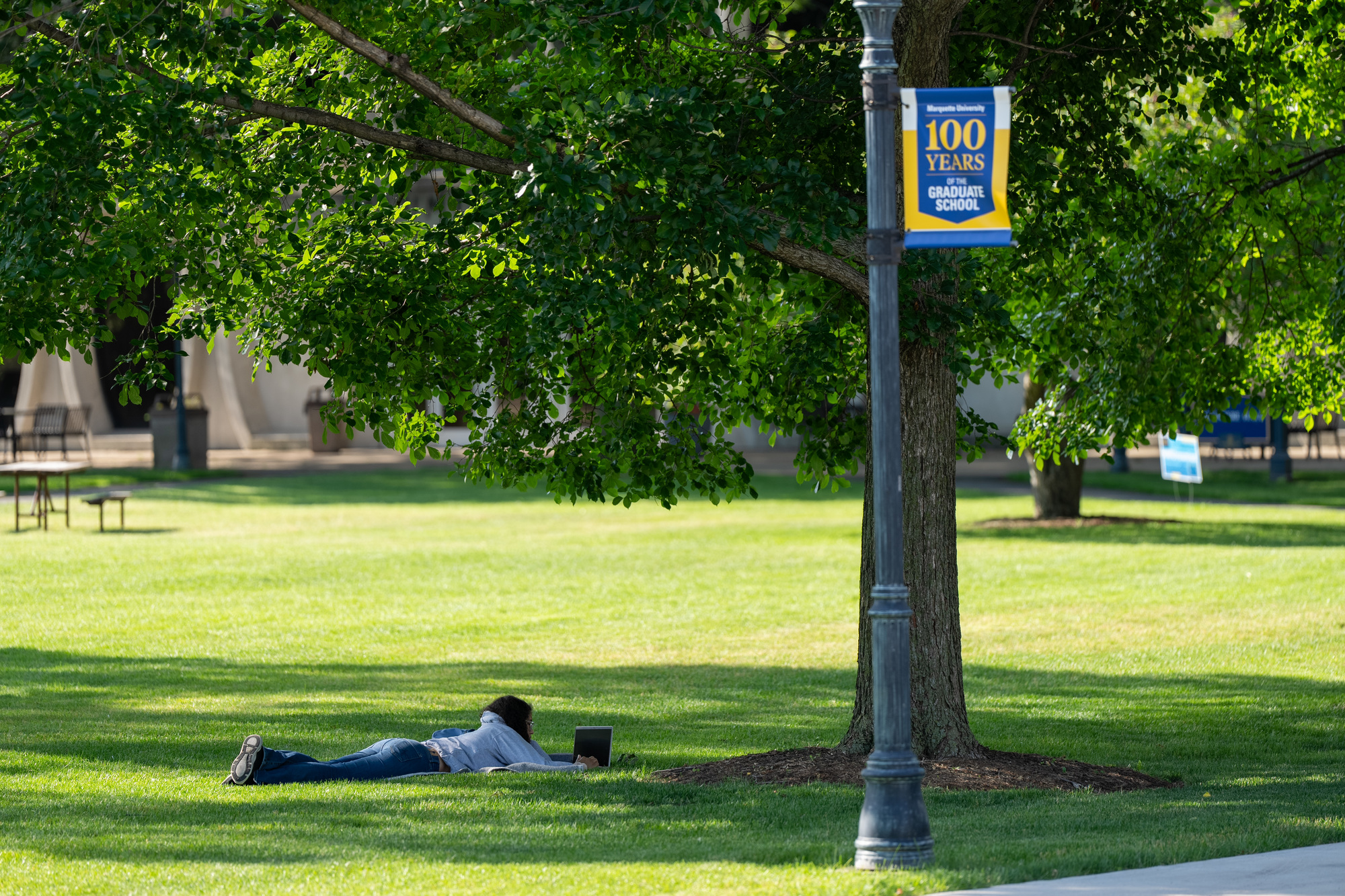
Have you noticed that it’s more difficult to be in a bad mood when you’re outside in the summer sun? There are many health benefits to getting sunlight — one happens to be a boost in mood. Dr. Deanna Arble, assistant professor of biological sciences, says there is scientific evidence that sun or light exposure contributes to mood elevation.
In a Q&A, Arble answers three questions and breaks down why soaking up the sun is beneficial to our state of mind.
We live in a state that experiences four seasons, but there are times where it feels as if only two emerge: summer and the gray months of winter. When summer finally arrives, it feels like a switch was flipped and a whole new attitude turns on. What is it about the sun that makes us feel so good?
As a circadian biologist, I can also tell you that light alters our mind and body in some surprising ways. It’s your eye that detects the increase in light during the summer months – but it’s not the same rods and cones cells that you use to see. There are special cells in your eye (melanopsin-expressing cells) which register light for the purposes of entraining our bodies to the environmental day. Most blind people, for example, still have these cells — so even though they cannot “see” the light, their brain and body know if it’s morning, afternoon or night! It’s these cells, when sufficiently stimulated by light, that improve our mood.
How does the sun affect our body as a whole? Does it affect our circadian rhythms?
In addition to mood, light does indeed tell our body what time it is via signaling the suprachiasmatic nucleus (located in the anterior hypothalamus of the brain). For this reason, it’s always important, no matter the season, to ensure that the only light your melanopsin-expressing cells detect is during normal daylight hours. Light during the night can disrupt your circadian rhythms and this can alter your sleep/wake cycle. Chronic circadian disruption can wreak havoc on your physiology, leading to an increased risk of many pathological conditions — from irregular menstrual cycles to cancer.
What essential vitamins do we receive from the sun? Is there a way to supplement that in the winter? Does light therapy or vitamin D supplements work in the same way?
We’re learning more and more about vitamin D. It seems to be important for so much more physiology than we previously expected. But it’s not the same as light — simply because light can stimulate those melanopsin-expressing cells in your eye (which go on to affect your mood) and vitamin D cannot. While they both have benefits, they work through different mechanisms. You can absolutely supplement light during those gray winter months! Just make sure that the light bulb you’re using is a broad-spectrum light that includes the short/blue wavelengths. Research has confirmed that it is the short/blue wavelengths that preferentially stimulate the melanopsin-expressing cells which go on to affect mood.
Related content:



